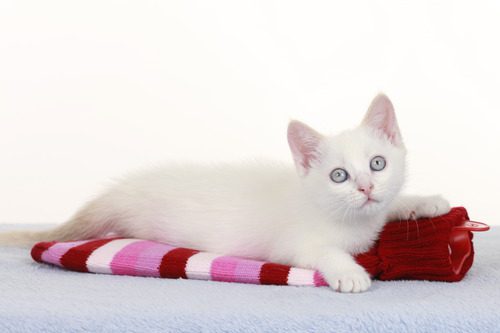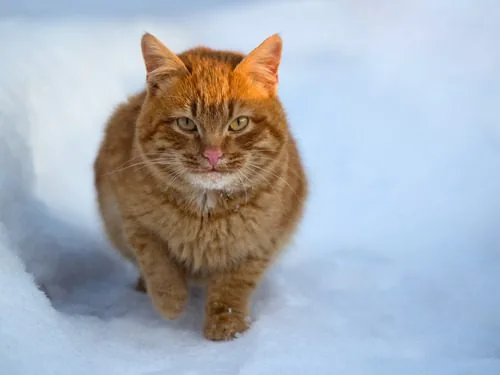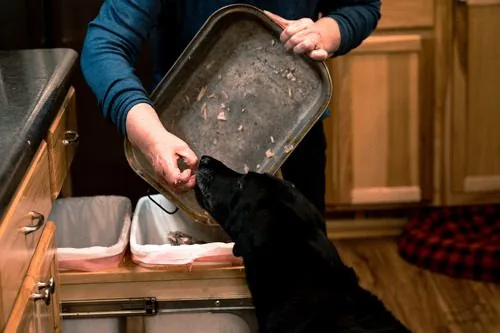Cats are known for their resilience and adaptability, but they are not immune to the dangers of cold weather. One of the lesser-known risks for cats, especially those who spend time outdoors, is hypothermia. Understanding how hypothermia affects cats and knowing the signs to look out for can help you protect your feline friend from this serious condition. In this blog, we will explore what cat hypothermia is, its causes, symptoms, treatment options, and preventative measures. If you suspect your cat might be suffering from hypothermia, contact Birch Lake Animal Hospital in White Bear Lake, MN, immediately at (651) 426-2246 or book an appointment online.

What is Cat Hypothermia?
Hypothermia occurs when a cat’s body temperature drops significantly below normal. A cat’s average body temperature ranges between 100.5°F and 102.5°F. When their body temperature falls below 100°F, they are at risk of hypothermia. Hypothermia can be mild, moderate, or severe, depending on how low the body temperature drops. Severe hypothermia is a medical emergency and requires immediate veterinary attention.
Causes of Hypothermia in Cats
Several factors can lead to hypothermia in cats:
- Cold Weather: Prolonged exposure to low temperatures is the most common cause. Outdoor cats or those living in unheated environments are particularly vulnerable.
- Wet Fur: Wet fur loses its insulating properties, making it easier for a cat to lose body heat.
- Medical Conditions: Illnesses or conditions that impair a cat’s ability to regulate body temperature, such as hypothyroidism, can increase the risk.
- Age: Very young kittens and older cats have less efficient thermoregulation, making them more susceptible.
- Injury or Trauma: Injured cats may be unable to seek warmth or shelter, increasing their risk of hypothermia.
Recognizing the Symptoms of Cat Hypothermia
Identifying the symptoms of hypothermia early is crucial for your cat’s health and well-being. Here are the signs to watch for:
- Shivering
- Lethargy
- Pale or blue gums
- Slow heart rate and breathing
- Cold ears and extremities
- Disorientation
If you observe any of these symptoms in your cat, seek veterinary care immediately.
Treatment Options for Cat Hypothermia
Treating hypothermia in cats requires prompt and appropriate action. Here are the general steps a veterinarian might take:
Initial Stabilization
The first priority is to stabilize the cat’s body temperature. This may involve using specially designed warming blankets or heating pads to gradually increase the cat’s body temperature. Your vet might place warm (not hot) water bottles wrapped in towels near the cat to provide gentle heat and administer warm IV fluids to help increase body temperature internally.
Monitoring and Support
Throughout the treatment process, the cat’s vital signs will be closely monitored. This includes regular monitoring of body temperature to ensure it is returning to normal levels, keeping track of heart and respiratory rates to detect any abnormalities, and conducting blood tests to check for underlying conditions that may have contributed to hypothermia.
Preventing Cat Hypothermia
Prevention is always better than cure. Here are some tips to help protect your cat from hypothermia:
- Provide Warm Shelter: Ensure your cat has access to a warm and cozy indoor environment, especially during cold weather.
- Use Heating Pads: Consider using cat-safe heating pads or beds during the winter months.
- Limit Outdoor Time: Restrict your cat’s outdoor activities during extreme cold to prevent prolonged exposure.
- Sheltered Areas: If your cat spends time outdoors, provide a well-insulated shelter to protect against the cold.
- Routine Vet Visits: Regular check-ups can help identify any medical conditions that may increase the risk of hypothermia.
- Proper Nutrition: Ensure your cat is receiving a balanced diet to maintain a healthy weight and robust immune system.
Ensuring Your Cat’s Safety in Cold Weather
Hypothermia in cats is a serious condition that requires prompt attention. By understanding the causes, recognizing the symptoms, and knowing the appropriate treatment and preventative measures, you can help keep your cat safe and healthy during cold weather. If you suspect your cat is experiencing hypothermia, don’t wait—contact Birch Lake Animal Hospital in White Bear Lake, MN, at (651) 426-2246 or book an appointment online.
Recent Posts
About Birch Lake Animal Hospital
The staff at Birch Lake Animal Hospital seeks to provide the best possible medical care for our highly-valued patients and clients.





